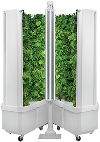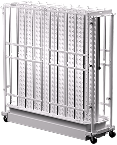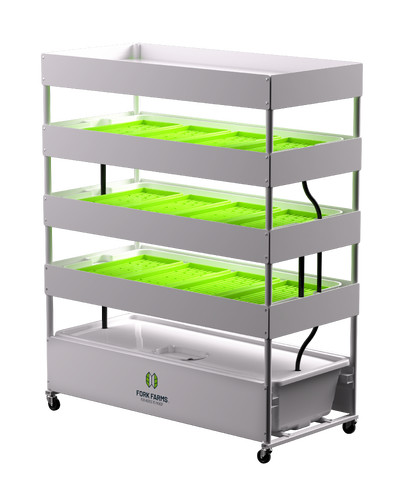Organic Hydroponics: Is It Possible?
The intersection of organic farming and hydroponics can seem like an oxymoron at first glance. Organic farming thrives on the idea of using natural methods and avoiding synthetic inputs, while hydroponics is known for its soilless cultivation that often relies on synthetic nutrients. So, is it possible to blend the principles of organic farming with the efficiency and control of hydroponics?
Hydroponics involves growing plants in a nutrient-rich water solution instead of soil. This method offers several advantages, such as faster growth rates, higher yields, and more precise control over growing conditions. Common hydroponic systems include nutrient film technique (NFT), deep water culture (DWC), and drip systems.
Organic Farming, on the other hand, is grounded in principles that emphasize the use of natural fertilizers, compost, and biological pest control. Organic standards also prohibit synthetic pesticides and genetically modified organisms (GMOs).
The Challenge of Combining the Two
The core challenge in merging organic principles with hydroponics lies in the nutrient source. Traditional hydroponics often uses pre-mixed and ready-to-go fertilizers to provide essential nutrients. Organic hydroponics would need to navigate this issue by incorporating nutrient solutions derived from natural sources. Organic standards typically require that fertilizers be derived from natural sources such as composted plant material, animal manure, or algae.
It is possible to use organic nutrients in hydroponic systems, but some challenges persist such as readily-available organic nutrients and the potential of these organic nutrients clogging a hydroponic system. Despite these challenges, there are innovative approaches that are making organic hydroponics more feasible:
- Organic Nutrient Solutions: Companies are developing organic nutrient solutions specifically designed for hydroponic systems. These solutions are often based on compost teas, seaweed extracts, and other organic sources that are processed to be more readily available to plants.
- Biological Filtration: Incorporating biological filters or systems that use beneficial microbes to break down organic matter can help address nutrient availability issues and reduce clogging.
- Hybrid Approaches: Some growers are adopting hybrid systems that combine aspects of hydroponics with soil or organic substrates. For example, using a soil-like medium in conjunction with a hydroponic system can provide a middle ground that supports both organic principles and hydroponic efficiency.
The Future of Organic Hydroponics
The demand for organic produce is rising, and as technology advances, the feasibility of organic hydroponics is likely to improve. Research and innovation in this field are ongoing, with scientists and growers working to refine organic nutrient formulations and system designs.
The integration of organic practices into hydroponics not only offers potential environmental benefits but also aligns with the growing consumer preference for sustainably grown food. As the industry continues to evolve, organic hydroponics could become a viable and popular method for growing high-quality, sustainably produced crops.
Organic hydroponics is an emerging field that combines the best of both worlds. At Fork Farms, we believe that hydroponically grown vegetables and fruit are among the healthiest fresh foods available. With the ability to control the plant’s environment and harvest at its peak, hydroponically grown vegetables can go from harvest to plate within minutes. No nutrients are lost in hydroponic growing due to excessive transportation miles or improper storage, making them the freshest options around. Hydroponic growing is also good for the planet as indoor hydroponic farming requires minimal water and energy resources, eliminates food transportation miles, and produces almost zero food waste due to the quality and shelf-life of the produce.
Reach out to keep learning and growing with us!
Important Links:
























